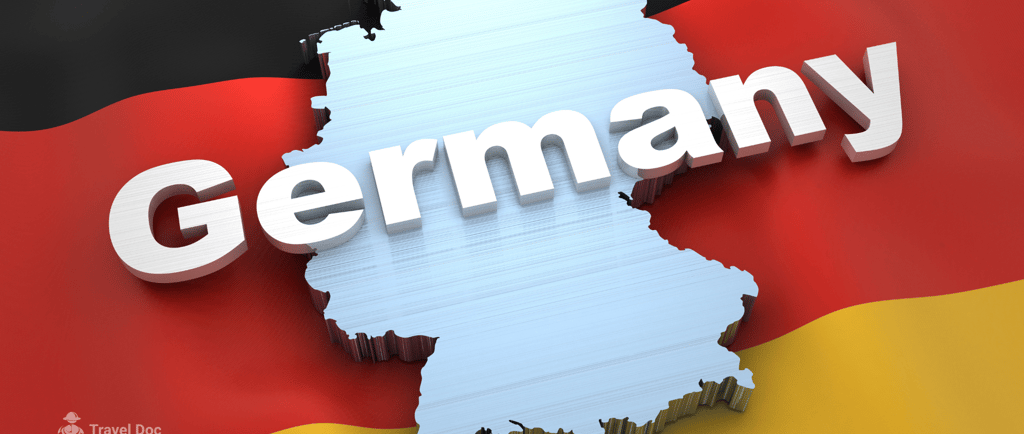Germany is making it easier to get long stay visas in 2025, streamlining the process for work, study, and job hunting.
Significant modifications were made to Germany's Long Stay Visa system in 2025, which will facilitate relocation for students, job seekers, and skilled professionals. In an effort to draw in international talent, Germany is streamlining its immigration procedure with the launch of the Opportunity Card and digital visa applications.


Significant changes have been made to Germany's Long Stay Visa system for 2025, which will facilitate relocation for families, business investors, students, skilled workers, and job seekers. In order to draw in international talent to Germany's workforce and economy, the revisions centre on simplifying applications, extending eligibility, and offering additional visa possibilities.
The Germany Long Stay Visa:
Those who intend to remain in Germany for longer than ninety days must get a Germany Long Stay Visa. This visa is applicable to a number of groups, such as:
Employment visas: For qualified workers who have been offered jobs in Germany.
Study visas are necessary for those who want to attend German universities.
Visas for family reunification: For families joining EU citizens or German residents.
Chancenkarte, or job seeker visas, are a new type of visa that lets applicants look for work while they're in Germany.
For freelancers and business owners, there are business and freelancer visas.
Visas for training and internships: For programs involving internships or vocational training.
Important Modifications to the 2025 Germany Long Stay Visa
Numerous changes have been made to Germany's visa system to make it easier for applicants from all over the world. Among the most noteworthy updates are:
The Opportunity Card (Chancenkarte) is introduced.
Jobseekers can stay in Germany for up to a year in search of work according to a new points-based visa. Eligibility will be determined by a number of factors, including qualifications, job experience, and language proficiency. While looking for a full-time job, holders of this visa are also permitted to work part-time.
Simplified EU Blue Card Procedure
Germany has made the EU Blue Card more accessible to workers in high-demand industries like engineering, IT, and healthcare by lowering the wage requirement. This visa is now open to more skilled professionals.
The Application Process Was Digitalised
The German Consular Services Portal now accepts online visa applications, cutting down on appointment and visa issuance wait times. This action improves accessibility and efficiency for candidates from all over the world.
Partnerships for Recognition of Foreign Qualifications
Professionals from other countries can now enter Germany after completing the qualification recognition process. For skilled workers looking for work, this update offers flexibility without causing delays because of bureaucratic approvals.
Employment Possibilities for Those with Long-Stay Visas
Clear employment rights for various visa types are outlined in the new visa framework:
Employment Visa : Full-time employment under a contract.
High-skilled workers with EU Blue Cards can live and work in flexible settings.
Job seekers who have an Opportunity Card are permitted to work part-time while seeking full-time employment.
Up to 20 hours of work per week are permitted with a student visa.
Professionals who work for themselves are allowed to work in Germany with a freelancer visa.
Visa for Job Seekers No work rights until a job is found.
How to Submit a Germany Application Extended Stay Permit
Use these procedures to submit an application for a long-stay visa:
Choose Your Visa Type: Choose the visa type that most closely matches the reason you want to be there (e.g., employment, study, family reunification).
Collect Your Records: Compile all necessary documents, including your passport, visa application form, proof of financial resources, accommodation details, and any work or study-related documentation.
Schedule an Appointment: Book a visa appointment at the nearest German Embassy or Consulate.
Attend the Visa Interview: Attend your interview, present your biometric data and original documents, and be prepared to answer questions concerning your planned stay.
Visa Processing: Visa processing normally takes 6 to 12 weeks. After processing, you can obtain your visa.
The Significance of These Modifications
For talented workers, students, and business professionals wishing to establish themselves in one of Europe's most robust economies, Germany's revised visa regulations open up new chances.
Through the simplification of application procedures, digitisation of submissions, and extension of eligibility, Germany hopes to draw in more international talent and address workforce shortages in important industries.
Last Remarks
Germany is now a more accessible and appealing location for foreign talent thanks to the 2025 Long Stay Visa improvements, which include the Opportunity Card, streamlined EU Blue Card, and digital applications. Now is the perfect moment to go over these revised visa choices and begin the application process if you intend to work, study, or invest in Germany.
